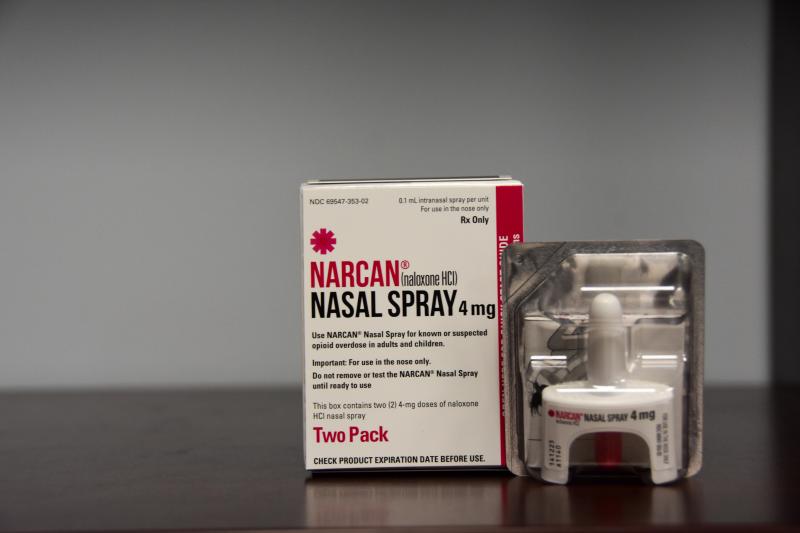Behavioral Health
Mental Health
Did you know suicide is the 2nd leading cause of death among people aged 10-24 in the United States. Millions of people - both adults and youth - are affected by mental illness each year.
Who is affected by mental health issues?
50% of mental illnesses begin by age 14 and 75% by age 24. All children regardless of gender, age, ethnicity, race, and residence within the United States can experience a mental health disorder.
The average delay between onset of mental illness symptoms and treatment is 11 years. Left untreated, mental health disorders can affect how children function at home, in school, and in their community.
What can you do to help?
Knowledge is power. Knowing warning signs of mental distress can help let you know when to seek help. If you notice a child is struggling with their mental health, it is important you talk with them and get appropriate professional help.
Mental Distress Warning Signs:
- Changes in mood or personality
- Changes in sleeping habits or feeling tired and low energy
- Changes in eating habits
- Inability to concentrate
- Increasing use of drugs and/or alcohol
- Withdrawing or isolating themselves
- Thinking or talking about suicide
If you or someone you know is in crisis, 988 Suicide and Crisis Lifeline is available 24/7. Call or text 988 or chat online at 988lifeline.org. Dial 911 in case of an emergency. If you are looking for treatment, SAMHSA's treatment finder can help.
What is IHAS doing?
The Independence Mental Health Task Force is a registered Missouri coalition formed in 2021 with a mission to lower the rate of teen suicide and improve the mental health of Independence youth. For more information, call 816-325-7606.
Mental Health First Aid (MHFA) is a skills-based training course. It teaches participants how to recognize and respond to signs of mental health challenges and substance use issues in adults and children. Teachers, coaches, employers, parents, and hospital and school staff should know MHFA. For scheduling, call 816-325-7606.
Looking for help or need more information?
Local Area Resources
Find the resources you need, closest to you.
988 Suicide and Crisis Lifeline
The 988 Lifeline provides 24/7, free and confidential support for people in distress, prevention and crisis resources for you or your loved ones.
Common Warning Signs of Mental Distress
Mental health conditions are common. Learn what to look for, when to worry and how to respond if your child is struggling with their mental health.
The Opioid Crisis in Independence
Drug overdose is the leading cause of death for adults aged 18-44 in Missouri. Over 70% of drug overdose deaths nationwide involve opioids.
In Jackson County, 1 in 5 drug overdose deaths are children under the age of 15. In Independence, both fatal and non-fatal opioid overdoses are on the rise. From 2020 to 2021 in Independence:
- Opioid overdose death rates increased by 66%
- Synthetic Opioid death rates increased by 85%
- Non-Fatal Opioid overdose rates increased by 38%
Drug addiction, also known as substance use disorder, is a chronic disease of the brain that can happen to anyone. Prevention and access to treatment and overdose reversal drugs are crucial to fighting the epidemic.
Fentanyl Facts
Fentanyl is a synthetic opioid 50 times stronger than heroin and 100 times stronger than morphine. Because it can be made cheaply, it is often added to other illicit drugs like heroin, methamphetamine, and cocaine to increase their potency. Even a speck of fentanyl can kill you. With fentanyl death rates on the rise, it is important to understand the myths and facts surrounding the drug.
Myth #1: "Touching, handling, or being in the same room as fentanyl can cause a person to become ill or overdose."
Fact: You cannot overdose simply by touching fentanyl. It must be introduced into the bloodstream or a mucus membrane.
It is important to understand that fentanyl cannot really be absorbed through the skin because people who have overdosed on fentanyl may have only minutes to live. Pausing or waiting for other people to arrive for fear that you might also overdose means that person might die. The one case in which fentanyl can be absorbed through the skin is with a special doctor-prescribed fentanyl skin patch, and even then, it takes hours of exposure.
Myth #2:"Fentanyl overdoses cannot be reversed."
Fact: Fentanyl overdoses can be reversed.
Fentanyl is not naloxone (Narcan) resistant. It is an opioid and will respond to naloxone. If you think someone is overdosing, administering Narcan might save their life.
To prevent substance use and overdoses you can:
You can’t tell what ingredients are in a pill just by looking at it. Drugs that you don't get from your pharmacy may contain other substances like fentanyl.
- Avoid lecturing and instead listen to your child’s opinions and questions about drugs
- Avoid scare tactics and instead emphasize how substance use can affect things important to your child like their appearance, driving, or friends
- Brainstorm with your child ways to turn down offers of drugs
- Sudden changes in friends, eating habits, sleeping patterns, requests for money, and school performance
- Withdrawing from the family
- Irresponsible behavior and general lack of interest
- Drug paraphernalia in the house
Most children get their opioids from family members or friends
- Always put medications in a safe and secure place like a locked cabinet or drawer.
- Keep track of how many pills are in each of your prescription bottles and keep track of refills
- Monitor doses and refills of your teen's prescribed medications
- Dispose of your unused medication by bringing them to a drug take back site or follow these steps:
- Mix medicines (liquid or pills; do not crush tablets or capsules) with an unappealing substance such as dirt, cat litter, or used coffee grounds
- Place the mixture in a container such as a sealed plastic bag
- Throw away the container in your trash at home
- Delete all personal information on the prescription label of empty medicine bottles or packaging, then trash or recycle the empty bottle or packaging.
Narcan saves lives by reversing opioid overdoses. For Independence residents, call 816-325-7803 or visit Independence City Hall today to get a free box Narcan and Narcan training.
Naloxone saves lives
Naloxone (Narcan) is a life-saving medication that can reverse the effects of opioid overdose. It is available for free to Independence residents. Call 816-325-7803 or visit Independence City Hall today to get a free box of Narcan and Narcan training.
If you think someone is overdosing:
- Check for breathing and clear airways.
- Lay person on their back and administer Naloxone/Narcan.
- Call 911.
- Administer rescue breaths - 1 breath every 5 seconds.
- If no response within 2-3 minutes, repeat step 2.
- Stay with the person until medical help arrives

Bullying
1 out of every 5 students is bullied in the United States. 5 out of 5 can help prevent it.
What can be done to prevent bullying and raise awareness?
If your child is being bullied be supportive, listen without judgment, and identify who to contact for help.
If your child is bullying others know that bullying is a behavior and behavior can change. Help them understand why they bully and how they can handle situations more positively.
If your child witnesses bullying encourage them to tell an adult, to offer support to the bullied student, and reinforce the fact bullying is not okay.
Where can I find more information?
The National Bullying Prevention Center is a great resource for parents and teachers. You can find information on:
